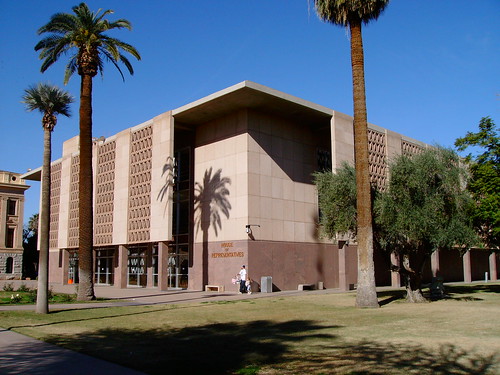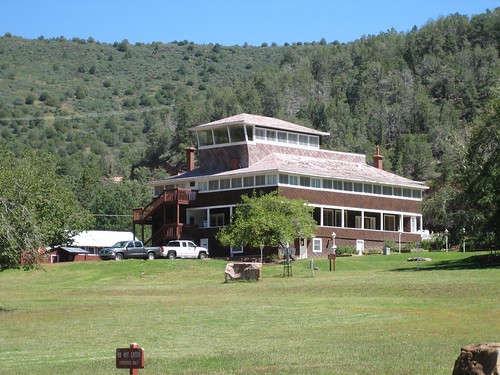
[Source: Howard Fischer, Capitol Media Services] — The state House lawmakers killed legislation Tuesday that would have provided money to reopen state parks on a full-time basis. A total of 36 legislators voted for the measure that would have taken $20 million from a special account designed to deal with urban sprawl and given some of that to the state Parks Board to compensate for cuts in the agency’s budget made by lawmakers in January. But HB 2088 needed 45 votes because the fund was created by voters in 1998. And the Arizona Constitution requires a three-fourths margin of the 60-member House — and the 30-member Senate — to alter what voters have approved.
Deputy Parks Director Jay Zieman said Tuesday’s action means five parks will remain closed two days a week to save money. It also delays the reopening of three other parks that were shuttered entirely, at least in part to cut costs. The defeat came when every House Democrat except one refused to support the measure.
Rep. Chad Campbell, D-Phoenix, said he was sympathetic to the needs of the Parks Department. But he questioned the legality of the move. He pointed out that the constitution forbids lawmakers from tinkering with any program approved by voters. He said the only exception, even with a three-fourths margin, is when a change “furthers the purpose’ of the underlying measure. In this case, he said voters approved providing $20 million a year for 11 years to help purchase or lease state trust lands in urban areas to keep them out of the hands of developers. Funding the operation of parks, said Campbell, does not do that. He also said raiding voter-approved funds sets a “bad precedent.”
None of that placated Zieman. “We expect to have $98 million in that fund at the end of the fiscal year,’ he said. “It is maddening to be in a position where you’re closing parks’ because 30 percent of the staff has been let go.
The state has closed Tonto, McFarland and Jerome state parks, though some of the reason they were chosen because of work that needs to be done at each site. What was not anticipated was the need to go to a five-day-a-week schedule at six other parks: Fort Verde, Oracle, Tombstone Courthouse, Tubac Presidio, Yuma Territorial Prison, and the Yuma Quartermaster Depot. The state is saving money by chaining them closed on Tuesdays and Wednesdays. Aside from the closures and reduced schedules, Zieman said his agency also has suspended funding grants, even in cases where groups had been given the go-ahead and work had been started.
Rep. Warde Nichols, R-Gilbert, who crafted the legislation, said the move made sense not to tap the funds which “are doing absolutely nothing for our state right now.” One reason there is so much money in the account because the 1998 law requires that taxpayer funds be matched by other sources, whether public or private. Those matching funds have not materialized. Beyond that, Nichols said the economy has slowed development to the point where builders are not buying up large swaths of state land. And Nichols said the funding is just a loan: The legislation would have required the state to put back the $20 million in the future.
But Rep. Steve Farley, D-Tucson, said that payback is not guaranteed, as future lawmakers could simply vote to ignore the mandate. [Note: To read the full article, click here. To read the Camp Verde Bugle’s editorial on this subject, click here.]


